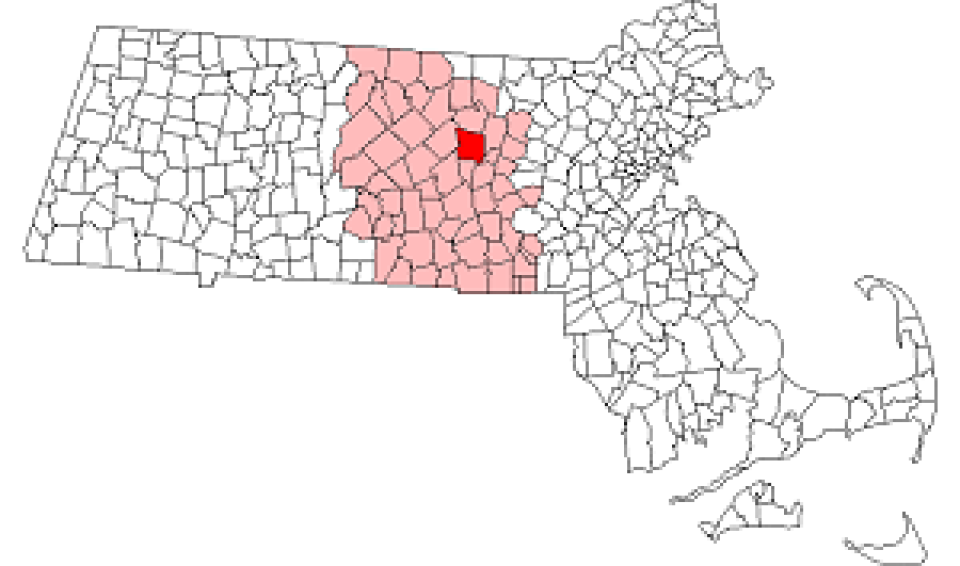
Fast, affordable Internet access for all.

In the summer of 2021, Lakeland city commissioners voted 5-to-1 to strike a private-public partnership (P3) with Summit Broadband, part of a 10 year plan to expand broadband availability within city limits. But officials in this central Florida city of 112,000 have expressed growing consternation that the planned broadband expansion is behind schedule and more selective than expected.
“I think this is the right move for the City of Lakeland as it will accomplish what was my goal: to make it a smart city without the burden of bonding out our debt,” Lakeland Commissioner Bill Read said shortly after the project was announced. “The private sector can do a job much better than any public entity, better than our city.”
A year later and several city leaders don’t seem entirely sure.
Local news outlet LkldNow indicated last month that most Lakeland residents have yet to see service, and that Summit appears to have shifted its deployment priorities away from uniform house-by-house coverage, and toward select businesses and housing development developments.
Lakeland Mayor Bill Mutz said of the revelations:
I am not satisfied with the speed with which Summit is rolling out service to consumers in Lakeland and concerned that they may have de-emphasized that express concurrent desire of the commission. Whereas it has been our goal to provide commercial business with improved Internet service, the consumer emphasis was originally and consistently one of our highest expressed priorities and motivations.
City Officials Question Partners’ Apparent Shift in Strategy
Under the city’s 10 year agreement with Summit, the provider pledged to spend $20 million over the next five years expanding the city’s existing 350-mile dark fiber network. Under the deal, Summit will pay the city $144,000 per year initially, ultimately switching to paying the city 10 percent of gross revenue on Internet services.
In the 1980s, Rancho Cucamonga proclaimed itself “The City with a Plan.” Back then, the plan was to remake this once rural enclave known for its vineyards into more than just one of the many sunny suburbs of Los Angeles. The vision was to leverage its stretch of the famed Route 66 highway as a branding and economic development tool and transform the city into a premier destination within the Inland Empire metropolitan area along the foothills of the San Gabriel Mountains.
That forward-looking spirit was revived again 30 years later as city leaders looked to cultivate a digital vineyard with the creation of a “Fiber Optic Master Plan” – a six-year $13 million investment plan that targets the city’s new development.
Today, Rancho Cucamonga (its name was derived from a Native American word meaning “sandy place”) owns and operates Rancho Cucamonga Municipal Broadband in partnership with Onward, a local private Internet service provider.
The city built, owns, and maintains the physical infrastructure, which is managed by the Rancho Cucamonga Municipal Utility (RCMU). Onward, which is based in the city, provides gigabit speed Internet access to the network’s 525 mostly residential subscribers as the network slowly expands to reach yet-to-be-built residential developments.
Targeting Greenfield Projects and Businesses
The move toward municipal broadband began in earnest in 2016 when the city hired Magellan Advisors to develop a plan that would leverage the city’s existing fiber assets and expand its municipal utility fiber network to “greenfield projects” and the city’s business parks (see the map below that shows blue areas where service exists and orange areas where service is coming).
Driven by Covid frustration and a boom in available grant money, Santa Clara County, California officials say they’re moving forward with their plans to explore a municipal broadband network, with the formal next steps expected to be announced at the tail end of this year.
Last December, the board of supervisors in Santa Clara unanimously approved the creation of a publicly-owned fiber municipal broadband network. Spearheaded by County Supervisors Cindy Chavez and Susan Ellenberg, the project aims to provide “affordable, reliable high speed broadband service” to communities across Santa Clara County.
Santa Clara county contracted CTC Technology and Energy to examine various construction and funding proposals and develop a project master plan. County officials tell ILSR that the next report on that effort isn’t expected until November or December of this year, but the county is working on building a bridge toward a publicly-owned option in the interim.
Hidden In Plain Sight
According to the California State Association of Counties (CSAC), 70,000 Santa Clara residents have no access to broadband whatsoever. Another 73,000 currently qualify as underserved, meaning they remain stuck on dial up or antiquated DSL incapable of meeting the FCC’s minimum threshold of 25 Megabit per second (Mbps) downstream/3 Mbps upstream to even be considered “broadband.”
“The pandemic has exposed the digital inequity that has been hidden in plain sight in the heart of Silicon Valley for two decades now,” Santa Clara County Supervisor Cindy Chavez told ILSR.
For the past four consecutive years, community owned and/or operated broadband infrastructure has proven to be a key ingredient in the makings of some of the fastest Internet Service Providers (ISPs) in the nation.
As was the case last year, PCMag’s recently released Top 10 list of “The Fastest ISPs of 2022” feature operators that are either municipal broadband networks or use city-owned fiber or conduit to deliver service across whole or parts of their footprint (with the exception of this year’s ninth-place finisher). Another way of saying that is: not one of 10 fastest networks in the nation are owned or operated by the major national ISPs, many of whom have embarked on an aggressive lobbying campaign to misinform public officials in particular and the public in general on the viability and successes of municipal broadband and local partnerships.
After ranking the major ISPs in their own slower category, PCMag turns to “talk about real speed.”
For that, you don’t go to the big guys … Higher speeds are found in smaller, localized ISPs.
Need for Speed? Look to Local ISPs and Munis
After PCMag compiled a year’s worth of speed tests to analyze which ISPs offer the fastest download and upload speeds, Sonic – a California-based independent ISP – came out on top this year, having “posted the highest number we have ever seen in our test results. Because the uploads this company offers are, on average, eclipsing download speeds—by a lot.”
Catapulting to the top of this year’s list (from 10th place last year), Sonic is a privately-owned company that uses publicly owned conduit in Brentwood, California.
Gainesville City Commissioners dealt a severe – if not fatal – blow to the expansion of municipal broadband in the Florida city where Gatorade was invented. Last week, five of the city’s seven commissioners voted to reject a proposal to spend $10 million of its American Rescue Plan funds to build a fiber-to-the-home (FTTH) pilot project.
As we reported here and here, city officials had been leaning in the direction of using $10 million of its $32 million in federal rescue plan funds to extend the city utility’s existing fiber network to bring high-speed Internet access to about 5,000 households caught on the wrong side of the digital divide.

Gainesville Regional Utility (GRU) has already deployed over 600 miles of fiber throughout the city, and for the past two decades, its subsidiary GATOR NET has been offering symmetrical gig-speed service to a limited number of area businesses, apartment buildings, government agencies, and community anchor institutions.
In 2017, the citizen-led group Connected Gainesville began a public campaign with the hopes of persuading city officials to bring FTTH service citywide in a market dominated by Cox Communications, the incumbent monopoly cable provider serving this city’s approximately 141,000 residents, 56,000 of whom attend the University of Florida.
Death-knell for Municipal Broadband in Gainesville?

This week on the podcast, Christopher is joined by senior staff on the broadband initiative to dig into recent topics, including Senior Reporter, Editor and Communications Team Lead Sean Gonsalves, Community Broadband Outreach Team Lead DeAnne Cuellar, and Senior Researcher and Research Team Lead Ry Marcattilio-McCracken.
The group talks about the value of overlapping networks and the co-option of the word "overbuilding" by monopoly lobbyists, the recent New York State funding program kickstarting municipal broadband efforts in a handful of communities, how states are responding (or not) to the NTIA process to get hundreds of millions in federal broadband infrastructure funding, and a new tool we built to help keep tabs on funds released from the FCC's Rural Digital Opportunity Fund.
This show is 36 minutes long and can be played on this page or via Apple Podcasts or the tool of your choice using this feed.
Transcript below.
We want your feedback and suggestions for the show-please e-mail us or leave a comment below.
Listen to other episodes here or view all episodes in our index. See other podcasts from the Institute for Local Self-Reliance here.
Thanks to Arne Huseby for the music. The song is Warm Duck Shuffle and is licensed under a Creative Commons Attribution (3.0) license.
After years of discussing the possibility of building a city-wide municipal broadband network in the face of resistance from the city manager, the city of Cambridge, Boston’s next-door neighbor, is now getting serious about moving forward.
Followed by a budget stand-off in the spring of 2020 with City Councilors that brought the issue to a head, City Manager Louis DePasquale finally relented to the possibility being pushed by Upgrade Cambridge, a citizen-led group organized in 2018 to advocate for municipal broadband.
In October, the city that is home to MIT and Harvard University hired the consulting firm CTC Technology & Energy to conduct a comprehensive assessment of the digital landscape and present various business models Cambridge could pursue to bring its residents ubiquitous, reliable, and affordable high-speed Internet service as an alternative to the monopoly offerings of Comcast and Verizon DSL.

While Upgrade Cambridge founding member Roy Russell acknowledged DePasquale’s initial reluctance, he credits the soon-to-be-retiring city manager for coming around to the idea.
“With the pandemic and the money the federal government has supplied (for expanding access to broadband), he (DePasquale) has really stepped up,” Russell said when we spoke with him last week.
Comprehensive Assessment Underway

This week on the podcast, while attending the 2022 Broadband Communities Summit in Houston earlier this month, Christopher was joined by Angie Kronenberg, Chief Advocate and General Counsel for INCOMPAS, a leading trade association advocating on behalf of telecommunication policies that encourage competition. The pair kick-off the podcast with a fun nod to Angie’s involvement on a “speed dating” panel where the concept of “overbuilding” (industry-speak for competition) was a hot topic of discussion.
The two then delve into an overview of what INCOMPAS has been working on in light of the unprecedented amount of federal funds being funneled into states to expand high-speed Internet access – covering everything from managing conflict among its members who themselves are competitors to engaging state and local officials on ways to leverage federal and state grant funds to promote competition, particularly as it relates to open-access fiber networks.
Before the show’s end, Chris and Angie discuss a recent INCOMPAS campaign known as “Broadland” – a campaign aimed to influence Congress to fund the construction of fiber networks, which is fundamental even for wireless technology including 5G to work successfully. They even manage to talk about net neutrality as well as how “inmate phone justice” impacts crime rates.
This show is 30 minutes long and can be played on this page or via Apple Podcasts or the tool of your choice using this feed.
Transcript below.
We want your feedback and suggestions for the show-please e-mail us or leave a comment below.
Listen to other episodes here or view all episodes in our index. See other podcasts from the Institute for Local Self-Reliance here.
Thanks to Arne Huseby for the music. The song is Warm Duck Shuffle and is licensed under a Creative Commons Attribution (3.0) license.
As communities across the Commonwealth of Massachusetts are at various planning stages in laying the groundwork to build their own municipal broadband networks, a rural Bay State town about 50 miles west of Boston has moved past the planning phase and is now offering municipal fiber-to-the-home (FTTH) service.
In Sterling (est. pop. 8,000) – the town that lays claim to Mary Sawyer Tyler, said to have inspired the “Mary Had a Little Lamb” poem – the town’s municipal utility is building out its aptly named Local Area Municipal Broadband (LAMB) network.
The project was initiated more than five years ago as a new division within the century-old Sterling Municipal Light Department (SMLD). As one of about 40 of the state’s 351 towns and cities with its own municipal electric utility, SMLD was awarded a $150,000 state grant to help finance the construction of a 23-mile regional I-Net ring in 2020. A year later, LAMB lit up its first residential customer in April of 2021.

Following an incremental approach, earlier this year, the LAMB added its 50th subscriber as construction crews are on track to build out a town-wide fiber network by the end of 2024.
Connecting with Nearby Towns
Like other communities across the nation with an established municipal utility, from a design and engineering standpoint, it was a relatively easy leap into broadband for SMLD, which currently supplies electricity to more than 3,700 residential, commercial and municipal customers.
Back in January, Colorado Springs Utilities (CSU) announced it was going to begin building a city-wide, open access fiber network owned, and that Ting would be its first anchor tenant. Construction of the network is expected to begin in the third quarter of this year, with a target completion date of 2028 (originally planned for fifteen years). The network will provide multi-gigabit service to roughly 200,000 homes as well as city businesses and anchor institutions. It’s still early in the process, but projections at the moment have the utility spending $45 million to $100 million a year for the next six years to complete the project. The first phase will see 225 new fiber route miles laid.
CSU Has Long Used Fiber
For thirty years CSU has built fiber across Colorado’s second-largest city. CSU’s dramatic expansion of this existing network directly benefits the utility by reducing overall costs, improving infrastructure monitoring, and boosting overall utility network resiliency. And it all will come with no rate increases to CSU electric customers.
But the company’s decision to lease access to this fiber expansion also directly aids the local community by lowering consumer utility costs, and delivering universal, affordable, high-speed Internet access. It’s a significant boon to Colorado’s second largest city that’s now an attractive, high-tech growth market.